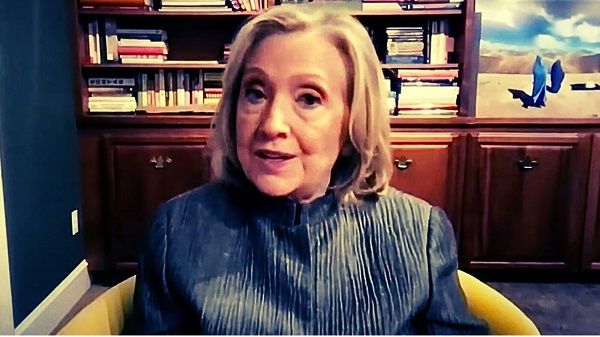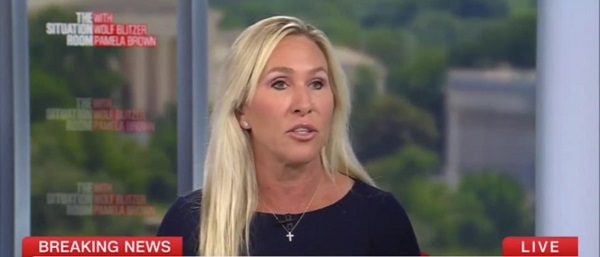Censorship Industrial Complex
Hillary Clinton Calls for Stricter Online Censorship as Establishment Fears Losing “Total Control”

From Reclaim The Net
|
In an interview with CNN, former Secretary of State Hillary Clinton expressed her pressing need for social media companies to enhance censorship measures, suggesting that failure to do so would lead to the loss of “total control.” This declaration aligns with broader concerns expressed by figures within the Democratic Party regarding the control of information online.
Clinton’s remarks come in the wake of substantial changes in the space of online expression, notably influenced by Elon Musk’s acquisition of Twitter in 2022. Under Musk’s stewardship, the platform, now rebranded as X, has championed a more laissez-faire approach to content moderation. This stance has facilitated a pushback against what some perceive as misleading mainstream narratives, particularly evident in the recent coverage of FEMA’s reported mishandling of hurricane relief efforts in North Carolina, Georgia, and Tennessee – a narrative that the government is calling “misinformation.” During her conversation with Michael Smerconish, Clinton criticized the existing legal framework that she believes enables unchecked content dissemination. “We should be, in my view, repealing something called Section 230, which gave platforms on the internet immunity because they were thought to be just pass-throughs, that they shouldn’t be judged for the content that is posted,” she explained. “If they don’t moderate and monitor the content, we lose total control,” Clinton argued, using the think of the children argument. She argues that this perspective is outdated and that without active moderation from platforms like Facebook, Twitter/X, Instagram, and TikTok, the consequences extend beyond mere social and psychological impacts to encompass real-world harm. Adding to the discourse, John Kerry recently echoed similar sentiments at a World Economic Forum sustainability meeting, bemoaning the obstacles the First Amendment poses in controlling information flow. “It’s really hard to govern today. The referees we used to have to determine what’s a fact and what isn’t a fact has been eviscerated to a certain degree,” Kerry stated. |
|
|
|
Since you’re reading this, we hope you find Reclaim The Net useful. Today, we could use your help. We depend on supporters (averaging $15), but fewer than 0.2% of readers choose to give. If you donate just $5, (or the equivalent in your currency) you would help keep Reclaim The Net thriving for years. You don’t have to become a regular supporter; you can make a one-time donation. Please take a minute to keep Reclaim The Net going.
Thank you.
|
Alberta
Alberta bill would protect freedom of expression for doctors, nurses, other professionals

From LifeSiteNews
‘Peterson’s law,’ named for Canadian psychologist Jordan Peterson, was introduced by Alberta Premier Danielle Smith.
Alberta’s Conservative government introduced a new law that will set “clear expectations” for professional regulatory bodies to respect freedom of speech on social media and online for doctors, nurses, engineers, and other professionals.
The new law, named “Peterson’s law” after Canadian psychologist Jordan Peterson, who was canceled by his regulatory body, was introduced Thursday by Alberta Premier Danielle Smith.
“Professionals should never fear losing their license or career because of a social media post, an interview, or a personal opinion expressed on their own time,” Smith said in a press release sent to media and LifeSiteNews.
“Alberta’s government is restoring fairness and neutrality so regulators focus on competence and ethics, not policing beliefs. Every Albertan has the right to speak freely without ideological enforcement or intimidation, and this legislation makes that protection real.”
The law, known as Bill 13, the Regulated Professions Neutrality Act, will “set clear expectations for professional regulatory bodies to ensure professionals’ right to free expression is protected.”
According to the government, the new law will “Limit professional regulatory bodies from disciplining professionals for expressive off-duty conduct, except in specific circumstances such as threats of physical violence or a criminal conviction.”
It will also restrict mandatory training “unrelated to competence or ethics, such as diversity, equity, and inclusion training.”
Bill 13, once it becomes law, which is all but guaranteed as Smith’s United Conservative Party (UCP) holds a majority, will also “create principles of neutrality that prohibit professional regulatory bodies from assigning value, blame or different treatment to individuals based on personally held views or political beliefs.”
As reported by LifeSiteNews, Peterson has been embattled with the College of Psychologists of Ontario (CPO) after it mandated he undergo social media “training” to keep his license following posts he made on X, formerly Twitter, criticizing Trudeau and LGBT activists.
He recently noted how the CPO offered him a deal to “be bought,” in which the legal fees owed to them after losing his court challenge could be waived but only if he agreed to quit his job as a psychologist.
Early this year, LifeSiteNews reported that the CPO had selected Peterson’s “re-education coach” for having publicly opposed the LGBT agenda.
The Alberta government directly referenced Peterson’s (who is from Alberta originally) plight with the CPO, noting “the disciplinary proceedings against Dr. Jordan Peterson by the College of Psychologists of Ontario, demonstrate how regulatory bodies can extend their reach into personal expression rather than professional competence.”
“Similar cases involving nurses, engineers and other professionals revealed a growing pattern: individuals facing investigations, penalties or compulsory ideological training for off-duty expressive conduct. These incidents became a catalyst, confirming the need for clear legislative boundaries that protect free expression while preserving professional standards.”
Alberta Minister of Justice and Attorney General Mickey Amery said regarding Bill 13 that the new law makes that protection of professionals “real and holds professional regulatory bodies to a clear standard.”
Last year, Peterson formally announced his departure from Canada in favor of moving to the United States, saying his birth nation has become a “totalitarian hell hole.”
Censorship Industrial Complex
Move over Soviet Russia: UK Police Make 10,000 Arrests Over “Offensive” Online Speech

In a nation where 90 percent of crimes go unsolved, the real emergency seems to be someone being offensive online.
|
|
-

 Energy2 days ago
Energy2 days agoExpanding Canadian energy production could help lower global emissions
-

 Business2 days ago
Business2 days agoWill the Port of Churchill ever cease to be a dream?
-

 COVID-191 day ago
COVID-191 day agoFreedom Convoy protestor Evan Blackman convicted at retrial even after original trial judge deemed him a “peacemaker”
-

 Daily Caller1 day ago
Daily Caller1 day agoTrump Gives Zelenskyy Until Thanksgiving To Agree On Peace Deal, With U.S. Weapons And Intel On The Line
-

 Daily Caller1 day ago
Daily Caller1 day agoBari Weiss Reportedly Planning To Blow Up Legacy Media Giant
-

 Business2 days ago
Business2 days agoThe numbers Canada uses to set policy don’t add up
-

 Business15 hours ago
Business15 hours agoI Was Hired To Root Out Bias At NIH. The Nation’s Health Research Agency Is Still Sick
-

 Daily Caller1 day ago
Daily Caller1 day agoMTG Says She’s Resigning From Office





